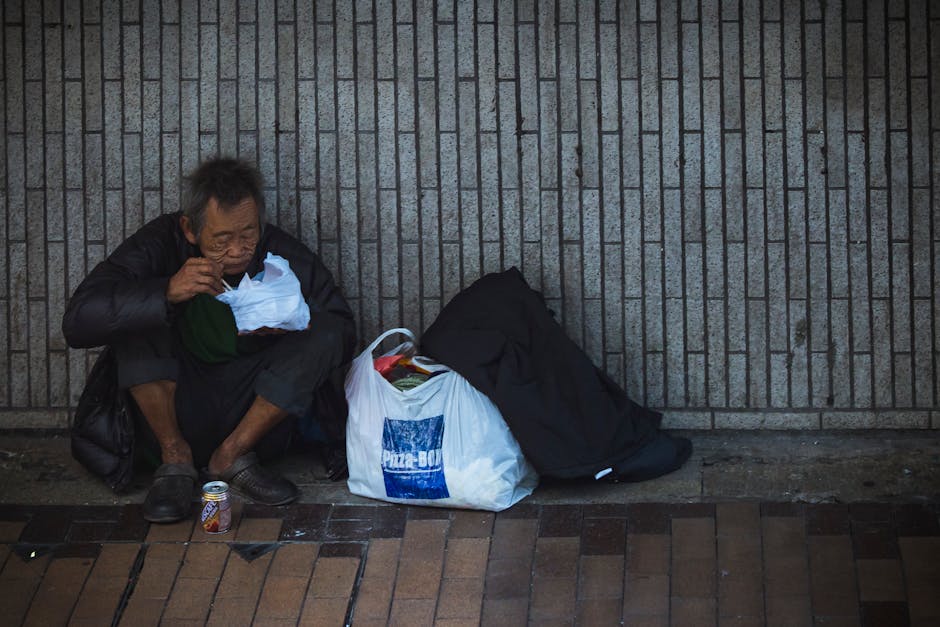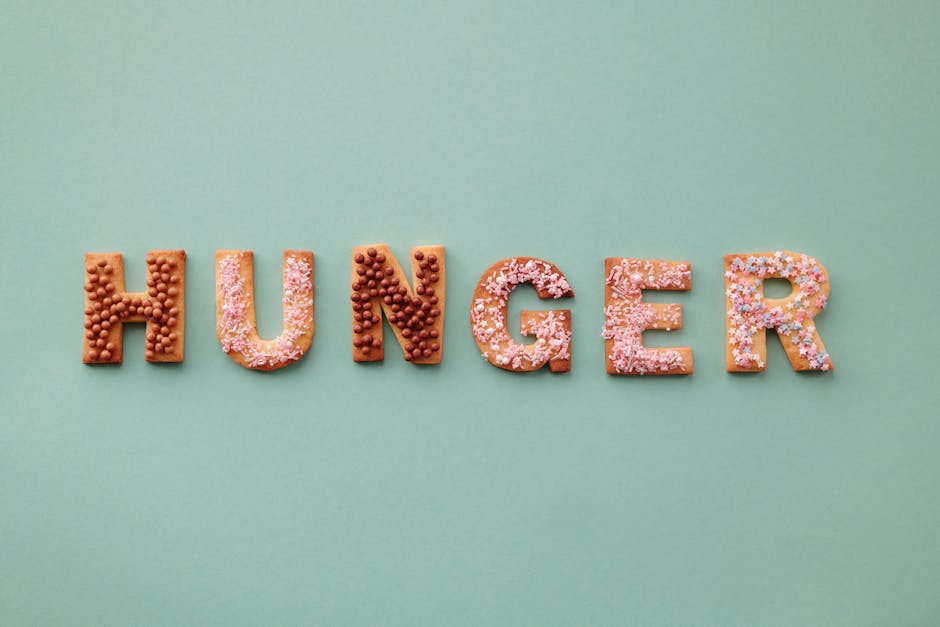Poems about hunger are a haunting chorus, a sorrowful symphony that resonates with the raw emotion of an empty stomach. These words capture the physical pang, the gnawing desperation, the desperate whispers of a waning appetite. Hunger, a universal experience, becomes a shared language in these verses, weaving tales of loss, resilience, and the bitter sweetness of hope. Through the lens of poetry, we witness the vulnerability of those who struggle to secure their next meal, the immense pressure of an empty plate, and the desperate yearning for sustenance.
35 Haunting Poems about Hunger
The Empty Plate
A hollow circle stares back at me
A void that echoes with every plea
For nourishment, for sustenance dear
A craving that brings forth bitter tears
Famine’s Shadow
In the dark of night it creeps
A silent thief that steals our sleep
It wraps around my hollow bones
A chilling grip that makes me moan
A Growling Belly
The protests rise, a swelling din
A chorus of complaints within
A cacophony of empty space
A reminder of a hungry face
The Bread of Memories
I recall the loaves of yesterday
Fresh from the oven, warm and gray
The aroma wafting, a savory treat
A flavor that my senses can’t repeat
The Hunger Pangs
Like a slow drumbeat, it begins
A cadence of craving that seeps within
A rhythmic ache that refuses to cease
A constant reminder of my emptiness
Starvation’s Stare
In the mirror, a reflection glares
A gaunt face stares, with sunken cares
A haunted look, a desperate plea
A cry for sustenance, a humanity
The Last Crumb
A lone morsel, a final stand
A solitary soldier, lost in the land
A meager ration, a desperate hold
A fleeting satisfaction, a hunger to unfold
The Pauper’s Feast
A meager spread, a paltry lay
A feast for one, in a world of gray
A sparse abundance, a sparse delight
A famine’s banquet, in the dark of night
Bones of Hunger
Ribs that show, a skeletal frame
A body worn, a hunger that’s tame
A slow decay, a wasting away
A gradual demise, day by day
The Famine’s Toll
A mounting cost, a devastating fee
A price to pay, for a meal to be
A sacrifice, a hungry heart
A lovesick soul, torn apart
The Ravenous Soul
A void within, a chasm deep
A hunger that gnaws, a soul that weeps
A craving that claws, a longing that screams
A famine that ravages, a heart that beams
The Hunger Cycle
Eat, digest, repeat, and rewind
A cycle of craving, a never-ending grind
A wheel of want, a hunger’s sway
A constant longing, night and day
A Hunger’s Lament
Oh, for a morsel, a crumb to share
A respite from the emptiness that’s there
A fleeting solace, a moment’s peace
A sated belly, a world to cease
The Famished Heart
A pumping Muscle, a beating drum
A hunger that resonates, a heart that’s numb
A vessel worn, a vessel thin
A famished heart, a love within
Enjoying these poems? You can also create your own poems with our Advanced AI Poem Generator.
Avoiding the Void
Stomach’s distant rumble, a growl in my chest
A gnawing ache that won’t find rest
The world outside is feasting and bright
While I’m left with this endless night
A craving that claws and tears me apart
A hunger that rends my soul and heart
A Midnight Snack
In the still of the night, I awake
With a pang of hunger that won’t abate
I reach for the fridge, a beacon of hope
A midnight snack to ease this bitter scope
But as I eat, my hunger still remains
A nagging reminder of life’s pains
Familiar Famishment
The smell of freshly baked bread
Wafts through the air, a temptation unsaid
My stomach growls, a primal call
For something warm, something to enthrall
But the bread’s allure is short-lived and cold
As hunger’s pangs begin to unfold
The Empty Plate
A table set, a feast for the eyes
But the plate before me, devoid of surprise
The table’s spread with a festive air
But my plate remains empty, without a care
I search for a crumb, a morsel to share
But find nothing, and hunger’s despair
Hunger’s Lullaby
Gently, gently, my stomach’s asleep
As hunger’s whispers my eyelids keep
A lullaby of aching and pain
As my body’s hunger begins to wane
But the memory of its cries remains
A haunting echo that refuses to fade
The Silent Scream
In the silence of the night, I scream
A silent cry that’s lost in the dream
A hunger that’s been unfulfilled and cold
A longing for something that’s grown old
I search for a sound, a voice to hear
But the silence is deafening, without a peer
The Cursed Belly
In the depths of my gut, a hunger lies
A gnawing ache that never subsides
A rumbling drumbeat that echoes through time
A perpetual emptiness that’s hard to define
With each passing day, it grows more strong
A force that cannot be ignored, a song
That calls to me, a constant refrain
A reminder of the pangs I cannot explain
A burning fire that devours all in its path
Leaving me with nothing, but a hollow aftermath
Pangs of Desire
My stomach roils with envy and spite
At the feast that’s spread before my sight
The savory scents that fill the air
Taunting me, without a single care
For the hunger that I cannot assuage
The pangs that claw at my parched stage
Leave me in anguish, dry and worn
A desolate landscape, forever forlorn
I crave the feast, the taste, the cheer
But alas, I’m left with naught but bitter fear
Famines of the Soul
The world outside is full and bright
A tapestry of plenty, in full delight
But in my belly, a famine reigns
A soul-starving emptiness, that brings no sustenance or gain
I search the world, far and wide
For scraps of peace, for love’s inside
But every door I knock, is met with disdain
Each crevice I explore, is only emptiness in vain
I roam the earth, an endless quest
Seeking solace, in the hollow unrest
The Beggar’s Plea
Oh, woe is me, a beggar doomed to roam
With hunger gnawing, like a wolf at home
My belly aches, my soul is sore
From the pangs that consume, and ask for more
Have mercy, kind hearts, on this wretched soul
Grant me a crumb, a morsel to make me whole
For I am lost, in this desolate land
A beggar, pleading, with an empty hand
Ravenous Shadows
In the corners, where light dares not tread,
Lurk shadows, steeped in hunger and dread.
They hunger not for flesh, nor gold, nor name,
But for stories, untold, and light’s warm flame.
They whisper and yearn for the tale unfurled,
Of the day’s triumphs, and night’s hidden pearls.
They crave words of love, laughter, and strife,
The symphony of syllables, the rhythm of life.
The more they consume, the more they crave,
Ravenous shadows, no grave can they find to save.
For they are born of the night, and unto it they’ll flee,
Bound by the tether of their eternal agony.
The Empty Hearth
Once, the hearth was the heart of the home,
A beacon of warmth, a place to roam.
Families gathered ’round, sharing tales and cheer,
The hearth was full of laughter, and sometimes, of tears.
But now, the hearth lies cold and bare,
No log nor ember, no fire to share.
Its hollow eyes stare into the void,
A testament to the warmth once enjoyed.
The hunger of the hearth gnaws and aches,
A reminder of the past, and all that wakes.
A hunger for life, for love, for light,
A hunger for the warmth of day and night.
The Ravenous Tree
In the heart of the forest, there stood a tree,
Its roots dug deep, gripping the heart of the sea.
Its leaves, they whispered in the wind’s soft song,
A tale of hunger, growing ever strong.
The tree’s hunger was not for sunlight or soil,
But for stories, for the whispers of every toil.
It gorged on the tales of the wind and rain,
Of the joys and sorrows of every creature’s pain.
With each story consumed, the tree grew tall,
Its branches reaching for the sky, its roots enthralled.
But the more it ate, the more it craved,
A ravenous tree, its hunger never sated.
The Starved Quill
Upon the desk, so lonely it lay,
A quill, starved for words, night and day.
Its feathers, once proud, now faded and torn,
A testament to the tales it hasn’t yet born.
It yearned for the ink, the lifeblood of tales,
For the whispers of the world, the secrets it hails.
It longed for the touch of a poet’s hand,
To breathe life into the stories it had planned.
But alas, the quill remained empty and still,
Its hunger for stories, a potent thrill.
A starved quill, its dreams unfulfilled,
A hunger for tales, that forever chilled.
The Gnawing Void
In the depths of the soul, there lies a void,
A hunger, a longing, a desire so broad.
It craves for connection, for love, and for light,
A gnawing, relentless hunger, every day and night.
The void devours hope, it consumes every tear,
A reminder of the loneliness, we all hold dear.
It yearns for the laughter, the joy, and the strife,
A hunger for life, for the heart’s sweet life.
But the void remains empty, forever unsated,
Its hunger for love, forever frustrate.
A gnawing void, a hollow soul,
A hunger for love, and a heart that grows cold.
Most Popular Poems About Hunger and Starvation
The New Colossus by Emma Lazarus
This sonnet, engraved on the pedestal of the Statue of Liberty, speaks of the hunger for freedom and a better life that drives people to seek refuge in America. The poem equates the statue with the Roman goddess of freedom, Libertas, and describes the “huddled masses yearning to breathe free” who come to America’s shores seeking a brighter future.
Data of Hunger by June Jordan
This powerful poem confronts the reality of hunger and poverty in America, contrasting the abundance of food with the scarcity of justice. Jordan weaves together statistics, news headlines, and personal testimony to create a searing indictment of systemic inequality and a call to action.
The Song of Hunger by Langston Hughes
Written during the Great Depression, this poem voices the anguish of those struggling to survive in a society that seems indifferent to their plight. Hughes’ vivid imagery and simple, direct language convey the desperation and despair that come with chronic hunger.
The Hunger Cycle by Gregory Pardlo
This poignant poem explores the connections between hunger, poverty, and the African American experience. Pardlo draws on his own family’s history to create a lyrical, introspective meditation on the ways in which hunger can shape identity and community.
Starvation by Wisława Szymborska
This Nobel laureate’s poem takes a more philosophical approach, exploring thehuman relationship with food and the ways in which our daily bread can be both a source of comfort and a reminder of our mortality. Szymborska’s characteristic wit and irony illuminate the complexities of hunger and satiety.
Hunger by Meridel Le Sueur
This Depression-era poem is a raw, unflinching portrayal of poverty and hunger in America. Le Sueur’s spare, direct language conveys the brutal reality of living on the margins, where survival is a daily struggle.
The Hungry Year by May Sarton
This poem captures the quiet desperation of living with chronic hunger, where even the simplest pleasures – a warm meal, a full belly – become distant memories. Sarton’s lyricism and sensitivity evoke the emotional toll of hunger and the human yearning for sustenance.
Bread and Hunger by Nazim Hikmet
This Turkish poet’s work often addressed the struggles of the working class, and this poem is no exception. Hikmet links hunger to the struggle for social justice, urging readers to recognize the humanity of those who toil and struggle for basic necessities.
Hunger’s Chant by Rita Dove
This Pulitzer Prize-winning poet weaves together myth, history, and personal experience to explore the complexities of hunger. Dove’s poem is a powerful exploration of the ways in which hunger can shape identity, community, and our very understanding of humanity.
The Feast by Marge Piercy
This poem contrasts the abundance of the wealthy with the scarcity of the poor, highlighting the injustice of a system that allows some to feast while others go hungry. Piercy’s vivid imagery and strong narrative voice make this a compelling call to action.
The Power of Poetry: Exploring Poems about Hunger
The Different Faces of Hunger
Hunger is not simply a physical sensation of an empty stomach; it can also represent a deep longing or desire. Poets have used the concept of hunger to explore a variety of themes, from poverty and social inequality to love and spiritual emptiness. By using hunger as a metaphor, poets are able to delve deeper into the human experience and reveal universal truths.
Poverty and Social Inequality
One of the most common themes in poems about hunger is poverty and social inequality. These poems highlight the plight of those who are unable to afford food and the systemic issues that contribute to their suffering. For example, in Langston Hughes’s poem “Ballad of the Landlord,” the speaker describes a tenant who is being evicted because he cannot pay his rent. The tenant’s hunger is not just for food, but also for justice and fair treatment.
Love and Desire
Hunger can also be used as a metaphor for love and desire. In these poems, the speaker longs for a connection with another person, and their hunger represents their deep yearning for this relationship. For example, in Pablo Neruda’s poem “Your Laughter,” the speaker describes his hunger for the sound of his lover’s laughter, which represents their shared joy and connection.
Spiritual Emptiness
Poets have also used hunger as a metaphor for spiritual emptiness. These poems explore the idea that true satisfaction cannot be found in material possessions or physical sustenance, but only through a connection with a higher power. For example, in Rumi’s poem “The Guest House,” the speaker describes how even the most painful experiences, such as hunger and thirst, can lead to a deeper understanding of the self and the divine.
The Role of Imagery
Imagery plays a crucial role in poems about hunger. By using vivid and specific descriptions, poets are able to convey the sense of urgency and desperation that comes with hunger. For example, in Sara Teasdale’s poem “There Will Come Soft Rains,” the speaker describes a world in which all living things have been destroyed, leaving only the sound of rain and the remains of a once-thriving civilization. The image of an empty house, with food still cooking on the stove, highlights the tragedy of the situation and the senselessness of hunger in the face of death.
The Power of Metaphor
The use of metaphor in poems about hunger allows poets to explore complex ideas and emotions in a nuanced way. By using hunger as a symbol, poets are able to tap into universal experiences and connect with their readers on a deeper level. For example, in Emily Dickinson’s poem “I Felt a Funeral, in my Brain,” the speaker describes a sense of emptiness and despair that is represented by the image of a funeral. The use of this metaphor allows the speaker to convey the depth of their emotions and the sense of loss that they are experiencing.
Conclusion
Poems about hunger offer a powerful lens through which to explore the human experience. By using hunger as a metaphor, poets are able to delve into themes of poverty, love, and spirituality in a nuanced and meaningful way. Through the use of vivid imagery and the power of metaphor, these poems are able to connect with readers on a deep emotional level and offer a unique perspective on the human condition.



